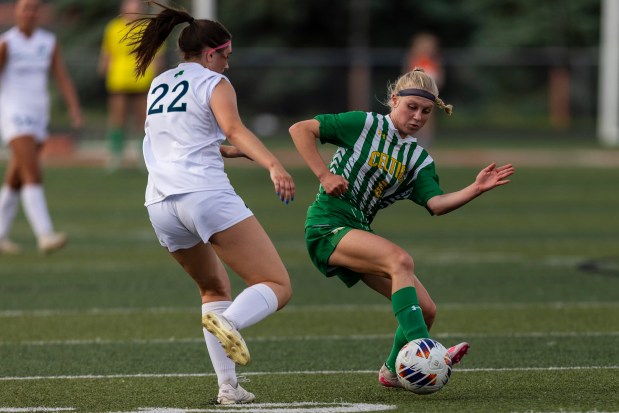Aurora is set to seek a special census from the U.S. Census Bureau in March 2025.
City officials want to get a count they believe to be closer to reality than the about 180,000 population figure the Census Bureau gave for Aurora after the 2020 decennial census.
Officials said getting closer to what they consider the real count, as much as 197,000 and possibly 200,000, would stem the tide of lost tax revenue the city has experienced since 2020, as much as almost $11 million as of the end of June.
“The city has exhausted all administrative remedies,” said Alex Alexandrou, the city’s chief management officer. “A special census is the next move to recover what revenue we’ve lost.”
The City Council will vote Tuesday on a memorandum of agreement with the Census Bureau that would have the bureau conduct the special census for a little over $1 million. At Tuesday’s City Council Committee of the Whole meeting, aldermen heard a report on the census situation.
Chris Minick, the city’s chief financial officer, said the new count would only need to find a little more than 1,000 additional residents to pay for the special census. It’s worth it, he said, because the city has already lost $10.9 million, and by the earliest a special census could be done, that figure will be up to more than $17 million.
The lost revenue comes because the city gets things like income tax distribution, local use taxes, motor fuel tax funds, transportation license renewal money and marijuana dispensary money, based on population.
The city loses about $4.3 million a year due to the undercount, Aurora officials said, which would mean $43 million for the full 10 years between 2020 and 2030.
“This is a lot of money, so I hope you understand that clearly, doing nothing is not an option,” Alexandrou said. “This is not just about 2020, it’s about 2030 and beyond. So, it’s incumbent upon us to set the record straight.”
The special census would take place in all or part of eight of the city’s 10 wards. It would encompass parts of 35 census tracts in the city, seven of them entire tracts.
The count would focus on areas on the city’s East Side where officials believe the Census Bureau missed people, or missed new construction.
The results of the 2020 decennial census showed Aurora with a population of about 180,000 people, down from 197,000 in 2010. From the moment the numbers were announced, Aurora officials said there was no way the city lost 17,000 residents, or about one ward’s worth of people.
Alexandrou said this week the low count was part of a “perfect storm” of events that included the fact the census was conducted in the midst of the pandemic shutdown, the fact a new federal administration was coming in, and that it turned out the Census Bureau was using untested new technology.
The decennial census was a combination of local effort and work by the federal government. A concerted local effort to get people to reply online garnered a higher initial count than in 2010. It was after that, when the Census Bureau took over the actual door-to-door count of people who did not respond, that things went sideways, city officials said.
“Aurora did its part,” said Mayor Richard Irvin. “The Census Bureau did not do its part.”
Local officials are gearing up again for a concerted local effort during the planned special census. Jamie Lee, a Harvard University fellow working in the mayor’s office, is in charge of a group of youth volunteers who are working to engage the community in the census.
“Our team has already been hard at work,” Lee said. “We feel the special census is a real moment for collective engagement, to hear the voices of those who are not heard.”
slord@tribpub.com




